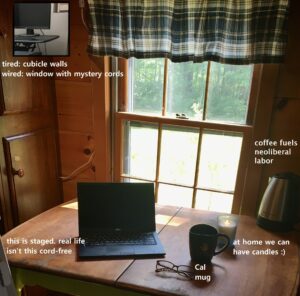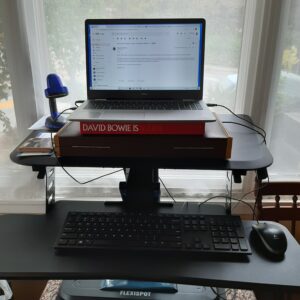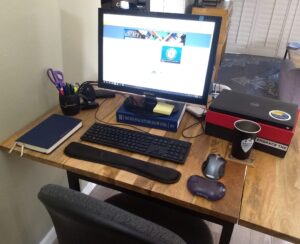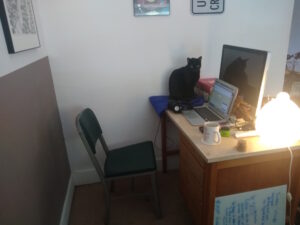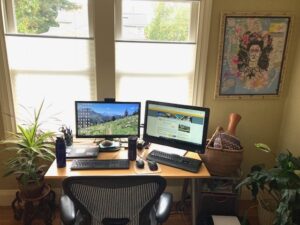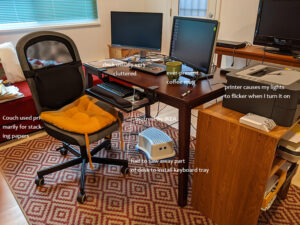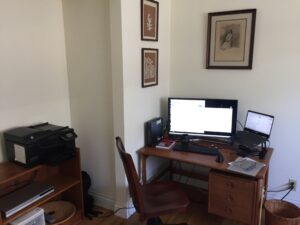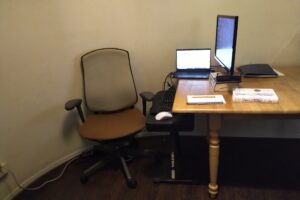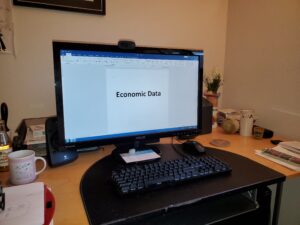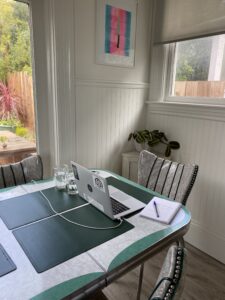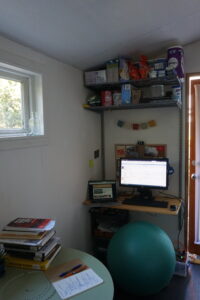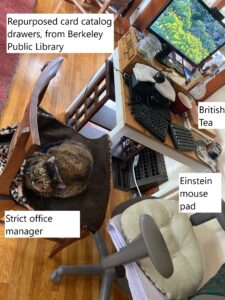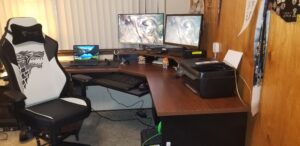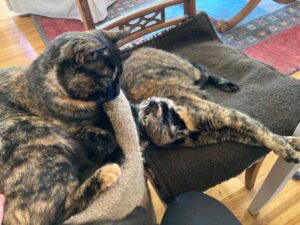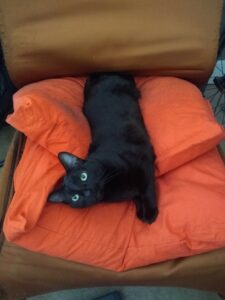Social Science
Pandemic Pivot: Data Engagement — from Berkeley, not Gothenburg
So many of us have a dream that didn’t take place this year. Mine was to go to the Volvo Museum in Gothenburg, Sweden. I’m a big Volvo fan: here’s my 1992 wagon, who the mechanic said wouldn’t make it from Seattle to Berkeley when I moved here. He was wrong, she flew into Berkeley in style. She’s a champ.

But, I digress! The reason I was due to be in Gothenburg at all was to give a talk at the 2020 IASSIST (International Association for Social Science Information Service and Technology) conference there in May, but of course like so much else the conference was canceled. I was pretty disappointed, especially since this was my chance to take a presentation I’d given for public librarians in 2017 and re-envision and reinvigorate it for academic librarians in 2020.
I got very lucky though…in mid-March, just as conference cancellation news came through, and the Bay Area’s shelter-in-place was declared, a colleague encouraged me to submit something for consideration to the ICPSR (Inter-university Consortium for Political and Social Research) Data Fair, already slated to be held online in the fall.
Reader, I pivoted! I was able to take the proposal for the Gothenburg lightning talk (about 7 minutes), and expand it into a proposal for an hour-long webinar, online from Berkeley. It was accepted! As I started to work on it, I discovered I had perhaps promised I’d talk about approximately three hours’ worth of material, so condensing it was a challenge—perhaps because it is on a subject I feel passionately about—“Data Engagement for the Data-Hesitant Librarian”. My strong belief is that many of us, and I tend to think especially about librarians, are led to believe that data is some big, mysterious, and daunting mountain we don’t want to climb, when actually we already have much more skill, comfort, and experience working with it than we think.
So, I tried to create a talk that had some fun in it, and some data-related resources that are practically begging to be explored. Interested in how we can combat misinformation? Check out callingbull.org, by the authors of the new book Calling Bull: The Art of Skepticism in a Data-Driven World. What about critical data literacy and data justice? Take a look at this guidebook from the Data Justice Lab, complete with interactive learning tools. Perhaps a recipe from The Library Assessment Cookbook appeals? Or maybe you just want to learn more about the Burning Man event, from the Burning Man Census data they collect each year.
Whatever your interest, geek out proudly! You can find the talk here (Is.gd/DataEngage_Talk —check out the other ICPSR Data Fair talks while you’re there) and the slides here (Is.gd/DataEngage_Slides). I hope you find something to interest and engage you, and I’d love to hear what you think—feel free to drop me a line at glusker@berkeley.edu!

COVID Chronicles: ICYMI edition
International Newspaper Display at Moffitt Library
It started with a tweet, back in July, by Berkeley City Councilmember Rigel Robinson (UCB 2018) describing the international newspaper display outside of Moffitt Library.
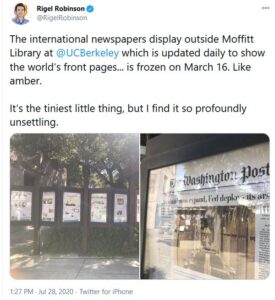
Robinson’s tweet got picked up by Berkeleyside, the online news source for all things Berkeley. The Berkeleyside story provided background on the international newspaper display in the plaza outside Moffitt Library and the Free Speech Movement Cafe and spoke with our Social Sciences Division colleague, Glenn Gillespie, Reference/Government Information Specialist.
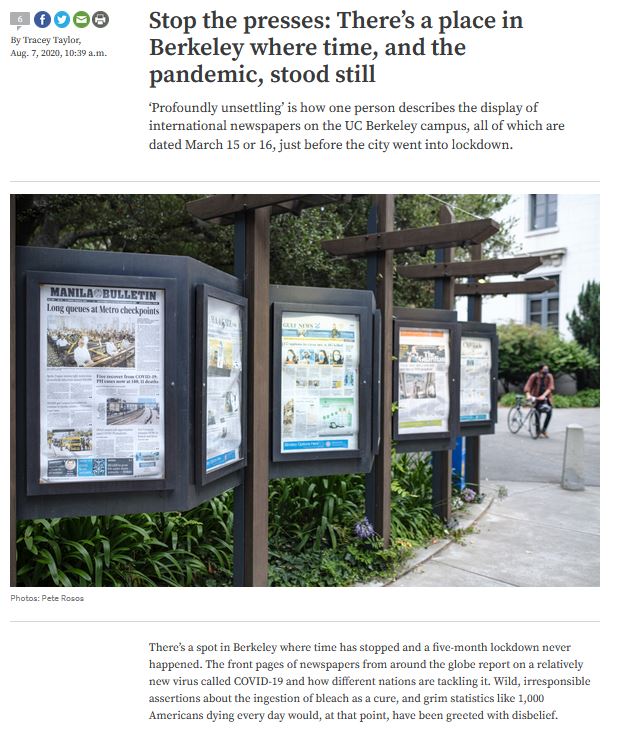
Just to play up the whole time warp/time capsule theme, it has been four months since this story appeared. And, at the time, it had been five months since the newspapers had been updated. Where exactly did 2020 go? Has it been the longest year on record? Or the shortest?
An Iconic Gift
This post is by Environmental Design Library librarian David Eifler; if you haven’t seen him, or his wonderful library (one of more than 25 on campus), you can check them out by joining him on this Virtual Tour.
**
While I was in high school, my small businessman dad came home one evening with a book. Although he had a natural curiosity and often read the encyclopedia for pleasure, I’d never seen him as excited about the written word as when he brought home The Last Whole Earth Catalog: Access to Tools – the one with the shadowed view of the “blue marble” on the cover. Now considered by many a precursor to the World Wide Web, it was a compendium of tools and books to improve the planet. Decades later, when I arrived to the Environmental Design Library (ENVI), I was pleased to find it and other editions in our collection. Librarian Elizabeth Byrne proudly told me that its author, Stewart Brand, had written a classic, How Buildings Learn: What Happens After They’re Built, while doing the research in our library.
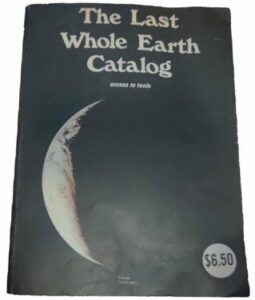
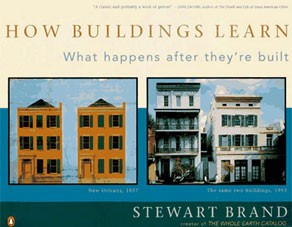
So, I was thrilled when Brand contacted me in late November and asked if ENVI would accept approximately 200 books used to write How Buildings Learn. He’s working on a new book and needed to purge his library of volumes from past projects. The founder of the WELL (Whole Earth ‘Lectronic Link) with Dr. Larry Brilliant (now a CNN COVID-19 expert) and CoEvolution Quarterly met me at his Sausalito office on a sunny December morning and gave me 11 boxes of architectural books. The Library got the books, and I had the great pleasure of meeting a national icon.
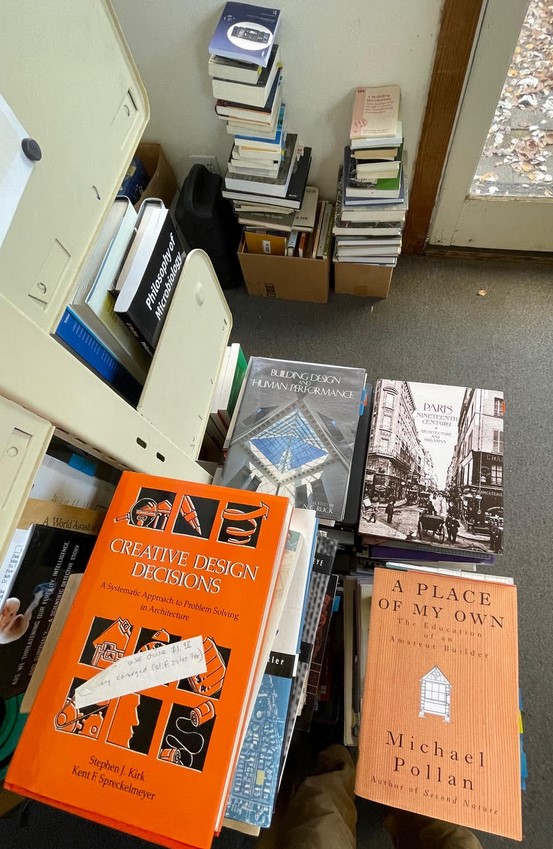
“Checking the Boxes” – A panel on race, ethnicity, and the Census
Although we don’t always think of it that way, one federal government program that affects each of us in the United State is the decennial census. And among the challenges of many kinds that a pandemic has brought us, its effects on gathering good quality census data is high on the list.
Earlier this year, the Library hosted a well-attended (physical) exhibit related to the census, Power and the People: The US Census and Who Counts (which can still be experienced online). Related to the exhibit, we were on board with our plan to host a panel of campus experts on the contested race and ethnicity questions in the census, and how they’ve shifted over time…. Until March 17, when the Bay Area went into a shelter-in-place order and the program had to be postponed. But last month, thanks to a persistent team, generous panelists, and the wonders of Zoom, we were thrilled to able to present the panel at last, online!
The program, titled Checking the Boxes: Race(ism), Latinx and the Census, featured three UC Berkeley experts on racial and ethnic categorizations in the census. Cristina Mora (Associate Professor of Sociology and Chicano/Latino studies), Tina Sacks (Assistant Professor, School of Social Welfare), and Victoria Robinson (Lecturer and American Cultures Program Director, Department of Ethnic Studies) were joined by our moderator, librarian Jesse Silva, for presentations and a lively Q&A.
Professor Mora started the program off with the information that “ethnic and race categories are political constructs… They are not set-in-stone scientific markers of identity or genetic composition.” She noted that since the census counts are directly related to funding, communities have a vested interest in getting accurate and complete counts, but this can be very difficult for groups and areas that are designated Hard to Count. Professor Sacks continued by emphasizing the ways in which census-driven funding allocations can affect people in poverty and those in social safety net programs. She also noted the intersections shown by census data between race and place, such as areas with a substantial number of incarcerated people. Finally Professor Robinson added background and context by discussing the site racebox.org, which shows the history of the race questions on the census from 1790 onwards, and which illuminates the changes in the cultural and social conceptions of what race is and how it can be measured.
The program concluded with an animated question and answer period, which included Professor Mora’s elaborating on the differences between racial and ethnic categories, Professor Sacks (who has actually been a census enumerator) discussing the challenges of counting the homeless population, and Professor Robinson revisiting the question of incarceration and the Attica problem: “[Incarcerated people’s] residence is considered to be a prison. That’s not their home, and the relationship then to the power…in the communities that they [aren’t from], that’s the Attica problem.”
Of course, this summary doesn’t do justice to the range and depth of the issues discussed. If you missed this program, or would like to see it again, check it out on the UC Berkeley Library’s YouTube channel!
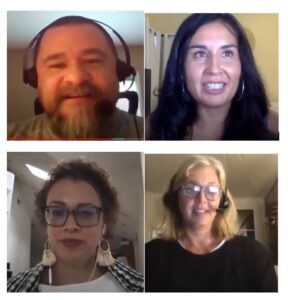
WFH edition (plus cats)
In the almost six months that we’ve been working at home we have tried to maintain a sense of community through meetings and retreats (via Zoom, of course), collaborative projects, and virtual coffee dates. However, beyond a few peeks on Zoom, we didn’t know what our colleagues’ work environments looked like, so we put out a call to our co-workers in the Social Sciences Division, asking them to share pictures of their home offices. We now present to you the range of ways we are continuing to stay connected to the Library and our work!
But first– a few words from colleague Natalia Estrada, who best sums up the challenge of working from home — even for those of us who were able to bring home our beloved dual monitors from our campus offices:
I live in a one bedroom apartment in a noisy part of town with a ton of construction. My spouse is also in academia, so we both are handling various Zoom meetings (sometimes at the same time!) and other large projects. You can imagine that working from home has been a challenge, bordering into impossible at times. The spouse and I have taken on many habits to try to make work-from-home in a small space work for us. We ended up rearranging our living room to create a better work station, using furniture we’ve acquired second hand (Urban Ore is a great place for this), plus taking certain needs into consideration. The work station, shared between the both of us, includes:
- a whiteboard used for teaching
- headphones, so I can block out distractions while I listen to a delightfully informative podcast (or the new Phoebe Bridgers album)
- two of our thickest cookbooks to use as laptop stands for presentations
- a desktop usually for processing large data sets, but also useful for touch ups before all those video meetings
- one of our many much needed mugs (this one comes from Valois in Chicago)
- a “work station” for our cat/office manager, so she can hang out while we work (she is a very good cat, but a bad office manager)
- artwork! Because artwork works great as a background (better than a laundry rack, at least for us). We like both the block print from Suzhou, China, and the concert poster from when Japanese metal band Boris played at Amoeba.
We’ve still faced various hurdles that make it hard for us to work at 100 percent, especially when one has the desk and the other has to Choose-Your-Own-Adventure a second work spot (the couch? the bed? the kitchen? the choice is yours!). But, hey, my cat digs all the attention she gets on Zoom!
“A bit surreal” – a return to campus
Dispatch and photos by Peter Basmarjian, Social Sciences Division Student Supervisor
Being back on campus after almost four months has been a bit surreal. Last week a handful of staff began the work of sorting and checking in all of the accumulated books that have been returned since March.
Recently returned items are quarantined separately for a week. Then books are checked in and sorted by division.
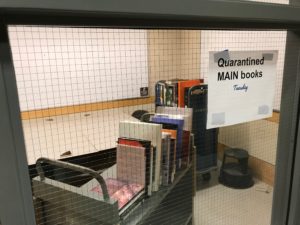
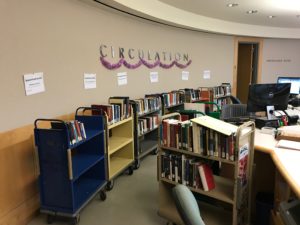
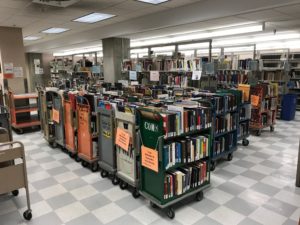
Here are a few more scenes from around the Library. The janitorial staff did an incredible job cleaning the library from top to bottom and the plants in the AIDS Memorial Courtyard have been recently watered and are doing well.

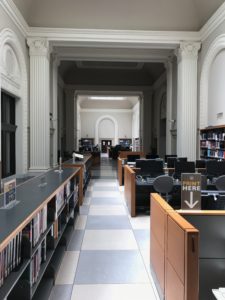

Online Artists’ Book Exhibit: A Celebration of Life
The Environmental Design Library has assembled a PDF of 25 artists’ books related to spring, domesticity and the reemergence of life. We wish we could share them with you in person, but images and metadata will have to suffice for now. Artists’ Books: A Celebration of Life.
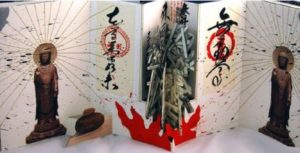
Prayer Sticks/Howard Munson
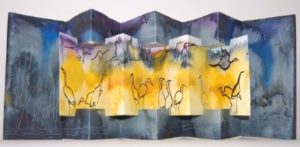
California State Resources for COVID-19
Everyone seems to have a something to say about COVID-19:
- Dippin’ Dots wants you to know that “in these challenging times, Dippin’ Dots is committed to doing our part to navigate through this unprecedented situation.”
- Hollywood celebrities have gotten into the act too. Many of the social media links in this article on the Top-10 Tone Deaf Celebrity Coronavirus Messages are Cringy AF (via Listverse) have since been taken down for, well, being cringy AF, we’re guessing.
- And then there was the incongruous yet insightful tweet from Steak-umm, a frozen steak company, stating that “anecdotes are not data. (good) data is carefully measured and collected information based on a range of subject-dependent factors, including, but not limited to, controlled variables, meta-analysis, and randomization.”
Resources from the State of California related to COVID-19: But much of the messaging we’re receiving these days — from county public health officials to utility companies to our streaming services — is both important, highly relevant and reassuring. Add to the list of important information regarding COVID-10 this UC Berkeley Library Guide:
California Resources: COVID-19
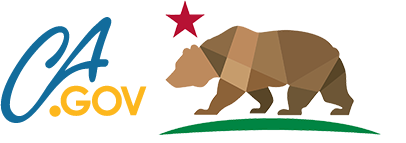
Created by Political Science and Public Policy Librarian Natalia Estrada, this guide lists resources produced by the state of California related to COVID-19. The guide links to data on COVID-19 at the national,state and county level; there are also links to COVID-related information from the state as it relates to areas of public health and healthcare, the economy, education, and housing. This is an evolving guide and Natalia will update it and add additional resources as they become available.
In the meantime, although the Library’s doors are closed, many of our services remain available.
Stay safe!
Come Edit with Us! (at the Wikipedia Edit-a-Thon, 3/4/20)

Umberto Eco, author of The Name of the Rose, said, “The cultivated person’s first duty is to be always prepared to rewrite the encyclopedia.” But, in the case of Wikipedia, we actually get to write the encyclopedia! If you are interested in Wikipedia as a phenomenon and what happens behind the scenes, in learning to edit, and/or in improving the quality and diversity of content in this important resource, join us at the upcoming Art + Feminism + Race + Justice Wikipedia Edit-a-Thon.
Why is this so important, anyway? It’s because Wikimedia’s race and gender trouble is well-documented. While the reasons for the gap are up for debate, the practical effect of this disparity is not: content is skewed by the lack of participation by women and underrepresented groups. This adds up to an alarming absence in an important repository of shared knowledge, which many groups are starting to address.
Art+Feminism is a national campaign improving coverage of cis and transgender women, non-binary folks, feminism and the arts on Wikipedia, and at UC Berkeley we have teamed up with the American Cultures program’s Race+Justice edit-a-thon. Edit-a-thons are a powerful way to address Wikipedia’s gaps in content. The Library is also joined in sponsorship of the event by 150 Years of Women at Berkeley, and suggested editing needs will include topics related to Berkeley alumnae of note.
So, join us in 405 Moffitt Library on Wednesday, March 4 between 11:00am and 5:00pm for an all-day communal updating of Wikipedia entries. Drop in any time! We will provide tutorials for the beginner Wikipedian, reference materials, and refreshments. Check out the schedule at bit.ly/wiki-berkeley for timing of informative talks, instruction sessions, and more. Set up your Wikipedia editing account in advance, or we can help you on the day. Bring your laptop, power cord and ideas for entries that need updating or creation! For the editing-averse, we urge you to stop by to show your support. People of all races and gender identities are invited to participate.
See you there!
NOTE: A Cal ID card is required to enter Moffitt, so those without a Cal ID card need to RSVP to attend the event by March 3.
The Library attempts to offer programs in accessible, barrier-free settings. If you think you may require disability-related accommodations, please contact us.
Twelve things to know about Natalia Estrada
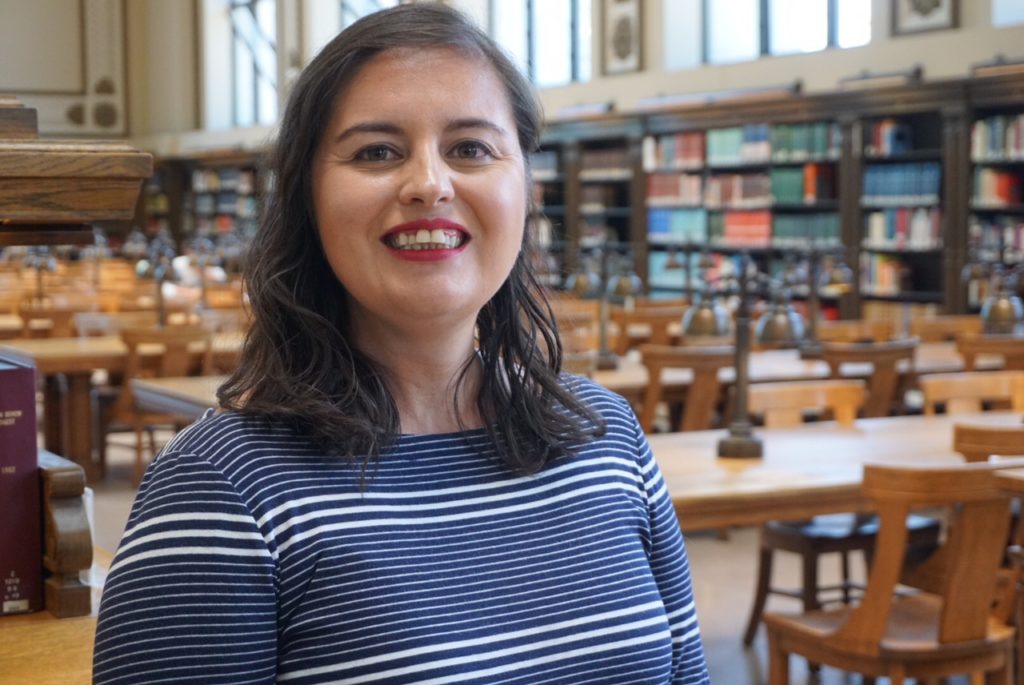
We are pleased to welcome the newest librarian in the social sciences division, Natalia Estrada. She is the Political Science & Public Policy Librarian, and is responsible for reference, instruction and collection development for the department of political science, the Goldman School of Public Policy, and legal studies. She is also the specialist for California government documents.
In a vague mash-up of the Vanity Fair Proust Questionnaire, the New York Times Book Review’s By the Book column, and Us Weekly’s 25 Things You Don’t Know About Me feature, here are twelve things about Natalia:
- I was born and raised in Downey, CA, spent a good number of years in Chicago, and have lived in the Bay Area since 2011.
- Before UC Berkeley, my library and cultural center work experience has included UC Hastings, the Center for Research Libraries, and the Museum of Contemporary Art in Chicago.
- I’m very much a puzzle solving/trivia answering sort of a person. I used to participate in the UChicago Scav Hunt during my undergrad years, I’m still searching for a good bar trivia spot, and I used to complete Sporcle quizzes for fun.
- I actually don’t spend a lot of my free time reading, so I’m pretty selective about the books I’ll read. Usually I go with horror, maybe some sci-fi, and non-fiction.
- Most of my reading gets done either during my lunch break, or when I’m on a flight. Nothing makes a better reading environment than being stuck on a plane.
- The last book I finished was Severance by Ling Ma, I’m a quarter through House of Leaves by Mark Danielwski, and I’m hoping to read In the Dream House by Carmen Maria Machado.
- My favorite book is We Have Always Lived in the Castle by Shirley Jackson. My older sister introduced me to Jackson via The Haunting of Hill House and “The Lottery” when I was in middle school, and I got hooked.
- The last great trilogy that I read was the Remembrance of Earth trilogy (aka Three Body Problem) by Cixin Liu.
- I have a small but mighty cookbook and food writing collection at home. It has your more popular cookbooks (Salt, Fat, Acid, Heat by Samin Nosrat, Bar Tartine by Nicolaus Balla and Courtney Burns), but it also has some special finds, like the 1964 edition of the Joy of Cooking.
- I cringe whenever someone ties librarianship with a “love of books.” I’m focused on helping you find the right resources for your research. Books are just a part of that, not the whole thing!
- I listen to a lot of podcasts, especially when I need to do large chunks of work, chores, or working out. Many are news based (Morning Edition, The Daily), subject deep dives (Throughline, Science Vs., The Dream), and yes, true crime (the second season of You Must Remember This, with its focus on the Manson Family Murders and Hollywood, is one of my favorites).
- My favorite movie is Tampopo, but the movie I’ll always watch is Jurassic Park.

